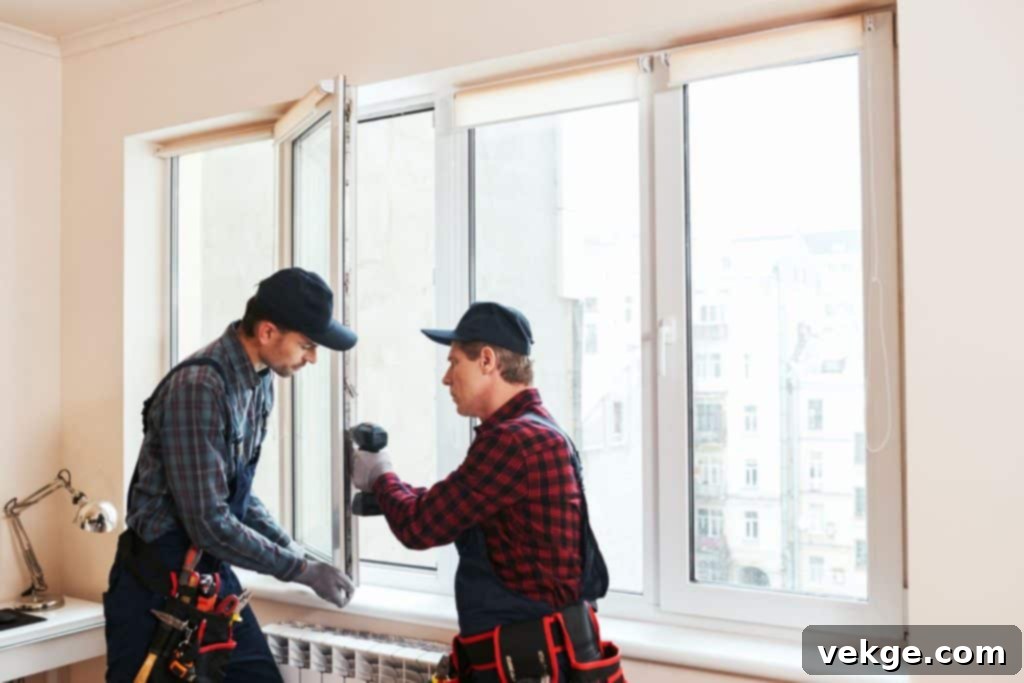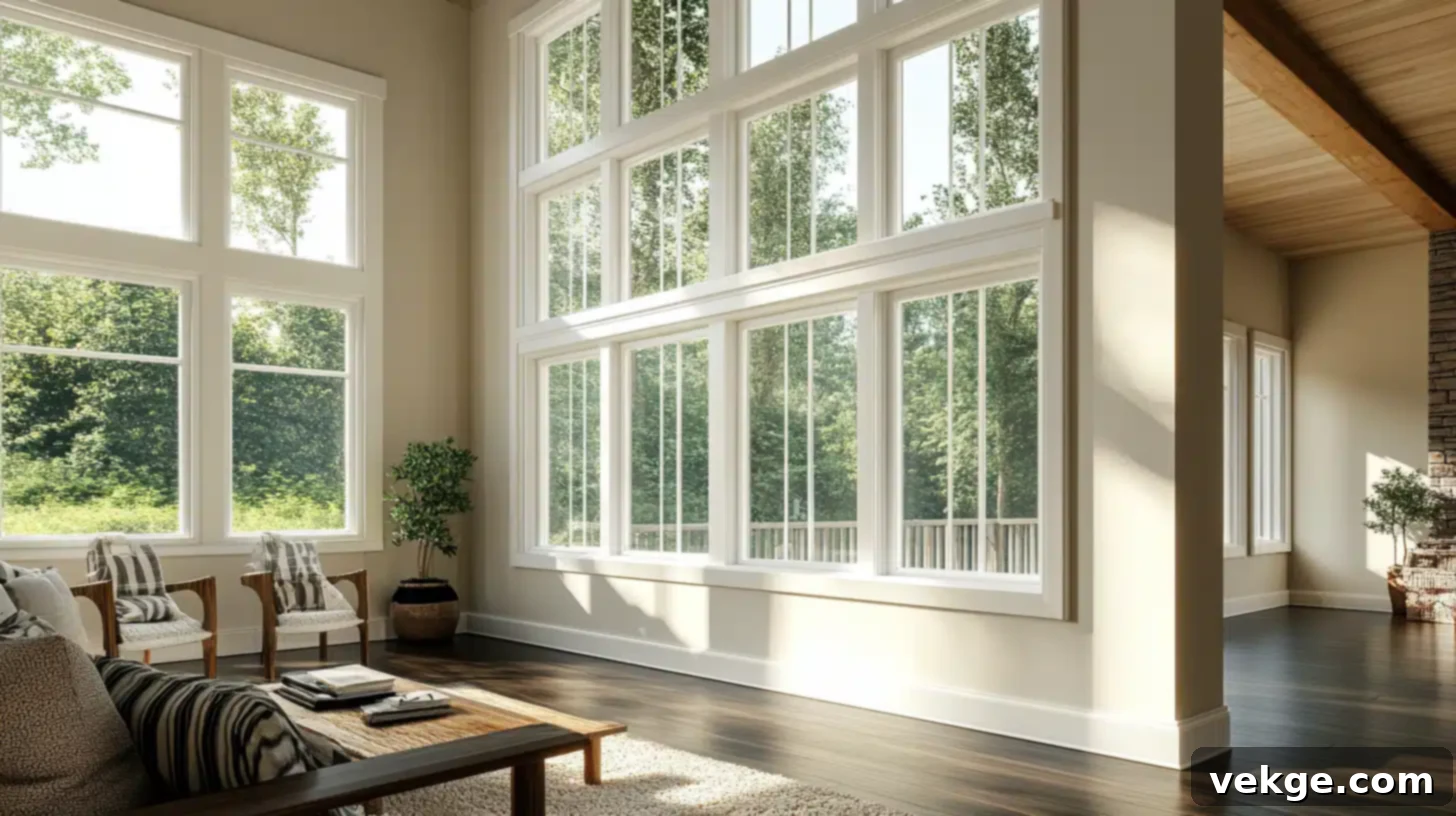The Ultimate Guide to Choosing the Best Replacement Window Contractor for Your Home
Replacing your home’s windows is a significant investment that promises to enhance energy efficiency, boost curb appeal, and improve overall comfort. However, the success of this project hinges critically on one decision: choosing the right replacement window contractor. A skilled and reputable contractor ensures a smooth process, quality installation, and lasting value, while a poor choice can lead to endless headaches, subpar results, and wasted money.
This comprehensive guide will walk you through essential considerations and practical tips to help you select a contractor who not only meets your specific needs but also guarantees a successful and stress-free window replacement for your family home. From initial assessment to final installation, we’ll equip you with the knowledge to make an informed decision.
Window Repair or Replacement? Making the Right Decision for Your Home

Before you even begin searching for a replacement window contractor, you must first determine if your windows truly need replacing or if a repair would suffice. This initial assessment is crucial to avoid unnecessary expenses and ensure you address the core issue effectively. Here’s how to make an objective evaluation:
Assessing the Condition of Your Windows
- Visible Damage: Carefully inspect your windows for obvious signs of wear and tear. Look for cracks in the glass, chipped or peeling paint, and signs of rotting or deteriorating frames. Extensive rot, especially in wooden frames, often indicates a need for full replacement rather than repair.
- Operational Issues: Do your windows stick when you try to open or close them? Are they difficult to lock? These operational problems can sometimes be fixed with minor adjustments or repairs, but persistent issues might point to structural problems that new windows would resolve.
- Drafts and Leaks: Place your hand near the window edges on a windy day. Do you feel a draft? Are there signs of moisture or condensation between the glass panes? Drafts signify poor sealing or insulation, leading to heat loss, while condensation between panes means the window seal has failed, and its insulating gas has escaped.
Evaluating Energy Efficiency
One of the most compelling reasons to replace windows is to improve your home’s energy efficiency. Older windows, especially single-pane versions, are notorious for energy loss. Modern windows come with advanced features like double or triple glazing, low-emissivity (Low-E) coatings, and inert gas fills (argon or krypton) that significantly reduce heat transfer. If you’ve noticed a significant increase in your heating and cooling bills, or if your home consistently feels drafty or fluctuates in temperature, upgrading to energy-efficient windows can provide substantial long-term savings.
Considering Your Long-Term Goals
Your future plans for your home should also influence your decision. If you intend to stay in your current home for many years, investing in new, high-quality windows can greatly enhance your comfort, reduce energy costs, and increase your property’s overall value and appeal. New windows can also improve sound insulation, boost security, and require less maintenance. However, if you’re planning to sell your home in the near future, a cost-effective repair to improve aesthetics or functionality might be sufficient, avoiding the higher upfront cost of a full replacement.
How to Choose the Best Replacement Window Contractor: A Step-by-Step Guide
Once you’ve decided that window replacement is the right path for your home, the next crucial step is selecting the right replacement window contractor. This decision can be daunting, but by following these systematic tips, you can ensure you hire a truly reliable and skilled professional.
1. Leverage Online Resources: Searching Smartly with Google
In today’s digital age, online search engines like Google are invaluable tools for finding local specialists. To find ideal replacement window contractors, use targeted keywords. Instead of just “window contractors,” try “replacement window contractors in [Your City/Town]” or “best window installation company [Your Zip Code].” Specifying your geographical location is critical; it ensures the results are relevant to your area, preventing you from sifting through companies that operate miles away.
Also, utilize Google Maps to see local businesses and check their ratings and reviews directly. This can often give you an immediate impression of a contractor’s reputation and service quality within your community.
2. Tap Into Your Personal Network for Trusted Recommendations
Word-of-mouth recommendations remain one of the most reliable ways to find a good contractor. Reach out to friends, family members, neighbors, or colleagues who have recently had window replacements done. People within your personal network are likely to be honest about their experiences, providing insights into the contractor’s work quality, professionalism, and adherence to timelines and budgets. They can tell you what went well and what potential pitfalls to avoid.
Even acquaintances can offer valuable suggestions because their reputation is subtly linked to the quality of their recommendations. A positive endorsement from someone you trust is a strong indicator of a contractor’s reliability and skill.
3. Conduct Thorough Background Checks
A comprehensive background check is non-negotiable for any potential replacement window contractor. This due diligence protects your investment and ensures you’re working with a legitimate and capable company.
- Verify Licenses and Insurance: Always confirm that the contractor holds all necessary licenses required by your state and local authorities. For example, if you’re in New Jersey, you can verify their status on the New Jersey Division of Consumer Affairs website. Equally important is checking for adequate insurance, including general liability insurance (to cover damages to your property) and workers’ compensation insurance (to protect you from liability if a worker gets injured on your property). Never hire an uninsured contractor.
- Review Customer Feedback: Scrutinize online reviews on platforms like Google Reviews, Yelp, Angie’s List, and the Better Business Bureau (BBB). Look for patterns in feedback regarding the contractor’s communication, punctuality, quality of work, and how they handle issues. Pay attention to how contractors respond to negative reviews; a professional response indicates a commitment to customer satisfaction.
- Check for Complaints and Litigation: The BBB website can also provide information on any complaints filed against the contractor and how those complaints were resolved. Checking public records for any past litigation can also offer insights into their business practices.
- Examine Their Portfolio: Reputable contractors often have a portfolio or gallery of their completed projects. This allows you to assess the quality of their workmanship and see examples of their style and capabilities.
4. Schedule Detailed Consultations
Once you’ve narrowed down your list to a few promising contractors, schedule individual consultations. These meetings are vital for discussing your project in depth and evaluating each contractor’s approach. During these consultations, be prepared to ask specific questions:
- Product Range: Inquire about the types of windows they offer – materials (vinyl, wood, fiberglass, aluminum), styles (double-hung, casement, slider, picture), and energy-efficient options (U-factor, SHGC, Low-E coatings). A good contractor will explain the pros and cons of different options relative to your home and budget.
- Installation Process and Timeline: Ask for a detailed explanation of their window installation process, from site preparation and old window removal to new window installation and cleanup. They should provide a realistic project timeline and explain who will be performing the work (their own employees or subcontractors).
- Warranties and Guarantees: Discuss the warranties offered for both the windows themselves (manufacturer’s warranty) and the installation labor (contractor’s warranty). Understand what is covered, for how long, and the process for filing a claim. Strong warranties indicate a contractor’s confidence in their products and services.
- Communication and Professionalism: Pay close attention to how the contractor communicates during the consultation. Are they punctual, attentive, and clear in their explanations? Do they answer all your questions thoroughly and address your concerns? A contractor who demonstrates excellent communication and professionalism from the outset is more likely to provide a smooth and satisfactory experience throughout the project.
5. Compare Prices and Project Quotes Correctly
When comparing bids from different replacement window contractors, resist the temptation to simply choose the lowest price. The “best price” doesn’t necessarily mean the cheapest; it means the best value for your investment, balancing cost with quality, service, and reliability. Here’s how to compare quotes effectively:
- Request Itemized Breakdowns: Insist on a detailed, itemized breakdown of all costs. This should include the cost of materials (windows, specific types, brands), labor charges, permit fees, disposal of old windows, and any additional services like trim work or painting. This allows you to understand exactly what you’re paying for and compare quotes on an “apples-to-apples” basis.
- Understand What’s Included: Ensure each quote includes the same scope of work and quality of materials. For instance, one contractor might quote for standard vinyl windows, while another might propose premium fiberglass with advanced energy features. Clarify these differences to ensure you’re comparing comparable offerings.
- Beware of Extremely Low Bids: A bid that is significantly lower than others might indicate a contractor cutting corners on materials, labor, or insurance, or it might suggest hidden costs that will surface later. Prioritize quality and peace of mind over a seemingly low initial price.
- Payment Schedule: Discuss the proposed payment schedule. Reputable contractors typically require a reasonable deposit upfront (e.g., 10-30%), with subsequent payments tied to the completion of specific project milestones, and the final payment due upon satisfactory completion of the entire job.
Watch Out for These Red Flags When Hiring a Window Contractor
While looking for positive attributes, it’s equally important to be vigilant about potential red flags that signal an unreliable or dishonest contractor. Steering clear of these signs can save you from significant stress and financial loss:
1. High-Pressure Sales Tactics
A reputable contractor understands that replacing windows is a major home improvement project requiring careful consideration. If a contractor employs aggressive or high-pressure sales tactics – such as demanding you sign a contract on the spot to qualify for a “limited-time discount” or refusing to leave a detailed written estimate – these are serious red flags. Such tactics often indicate a desire to prevent you from getting other quotes or thoroughly reviewing the terms. Take your time, ask questions, and never feel rushed into a decision.
2. Demanding Full Upfront Payment
While it is standard practice for contractors to request a reasonable deposit (typically 10-30% of the total cost) to cover initial material orders and project mobilization, demanding the entire payment upfront is a major warning sign. This practice carries significant risks:
- Risk of Scams: Contractors who demand full payment before any work begins might disappear with your money, leaving you with an unfinished or poorly executed project and no recourse.
- Lack of Accountability: When a contractor has already received full payment, their incentive to complete the job to your satisfaction or on time diminishes significantly.
- Unprofessionalism: Reliable contractors typically structure payments according to project milestones. They trust that their quality work will earn them the subsequent payments. A contractor’s insistence on full upfront payment can indicate financial instability or a lack of confidence in their ability to deliver satisfactory results.
Always ensure your payment schedule is tied to the progress of the work, with the final payment only made after the job is completed to your satisfaction and you’ve had a chance to inspect it.
Conclusion
Choosing the best replacement window contractor is a critical step in any home window replacement project. It requires careful research, due diligence, and an understanding of what to look for—and what to avoid. By systematically researching potential contractors, thoroughly evaluating multiple itemized quotes, engaging in detailed consultations, and being alert to common red flags, you can navigate this process with confidence.
Ultimately, a well-chosen contractor will not only provide exceptional workmanship and ensure the longevity of your new windows but also deliver the best value for your money. This meticulous approach guarantees a smooth, successful project, transforming your home with enhanced energy efficiency, curb appeal, and lasting comfort for years to come.
